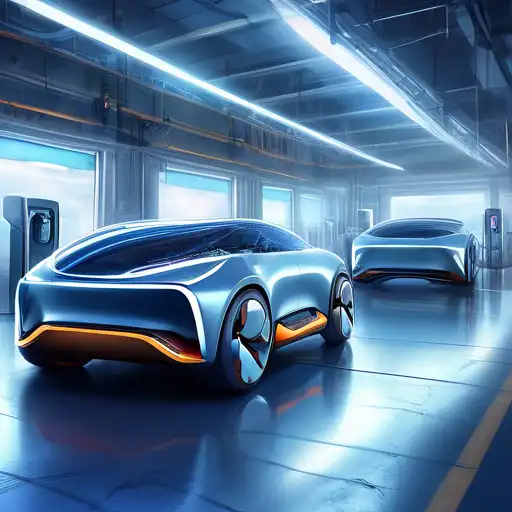The Dawn of a New Era in Automotive Technology
The automotive industry is undergoing a transformative shift, with electric vehicles (EVs) and cutting-edge automotive technologies leading the charge. This revolution is not just about replacing the internal combustion engine; it's about reimagining the future of transportation. From advancements in battery technology to autonomous driving systems, the sector is evolving at an unprecedented pace.
Electric Vehicles: Leading the Charge Towards Sustainability
Electric vehicles have moved from niche to mainstream, thanks to significant improvements in battery life, charging infrastructure, and affordability. Companies like Tesla, Nissan, and Chevrolet are at the forefront, offering models that cater to a wide range of consumers. The environmental benefits of EVs, combined with lower operating costs, are making them an increasingly attractive option for drivers worldwide.
Breakthroughs in Battery Technology
At the heart of the EV revolution is battery technology. Recent advancements have led to batteries that are more efficient, longer-lasting, and faster to charge. Innovations such as solid-state batteries promise to further revolutionize the industry by offering higher energy density and improved safety features.
Autonomous Driving: The Future of Transportation
Autonomous driving technology is another area where significant progress is being made. With companies like Waymo and Tesla testing self-driving cars, the dream of hands-free driving is becoming a reality. These systems rely on a combination of sensors, cameras, and artificial intelligence to navigate roads safely, potentially reducing accidents caused by human error.
Connectivity and Smart Features
Today's vehicles are more connected than ever, offering features like real-time traffic updates, remote diagnostics, and over-the-air software updates. This connectivity not only enhances the driving experience but also opens up new possibilities for vehicle-to-vehicle communication, further improving safety and efficiency on the roads.
The Role of Renewable Energy in Powering EVs
The shift towards electric vehicles is also driving interest in renewable energy sources. Solar panels and wind turbines are becoming increasingly important in charging EVs, reducing the carbon footprint of transportation even further. This synergy between renewable energy and electric vehicles is a key component of the global effort to combat climate change.
Challenges and Opportunities Ahead
Despite the progress, challenges remain. The need for more widespread charging infrastructure, concerns about battery recycling, and the high initial cost of EVs are hurdles that need to be addressed. However, with continued innovation and investment, these challenges present opportunities for growth and improvement in the sector.
The advancements in electric vehicles and automotive technology are not just changing how we drive; they're reshaping our relationship with transportation. As we look to the future, it's clear that the road ahead is electric, autonomous, and connected.
